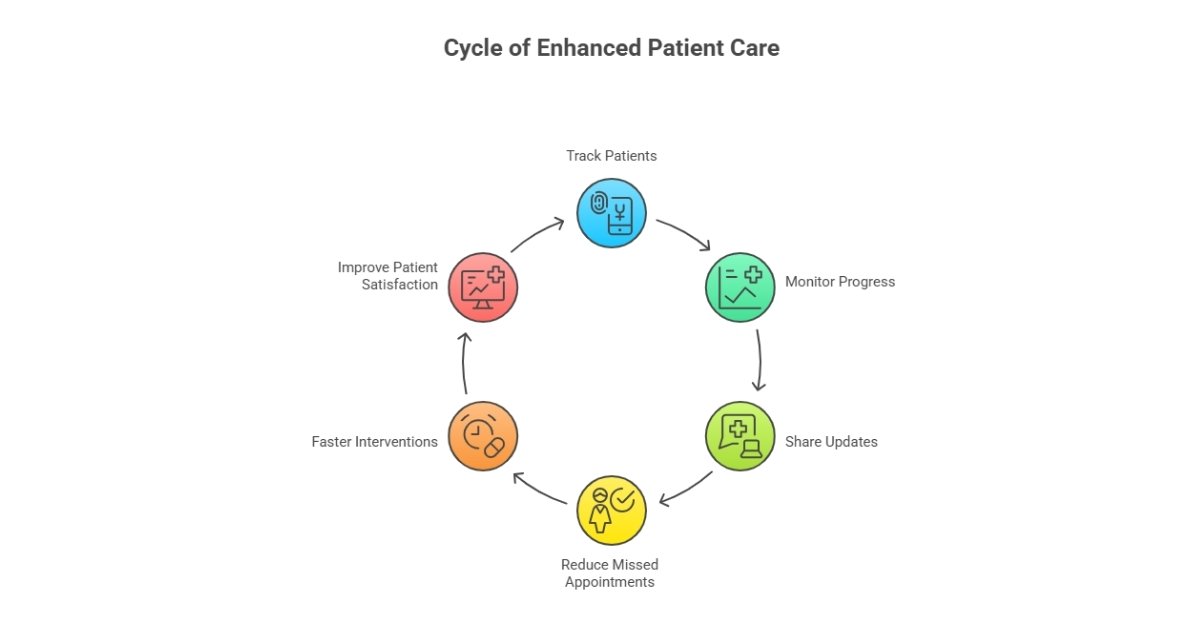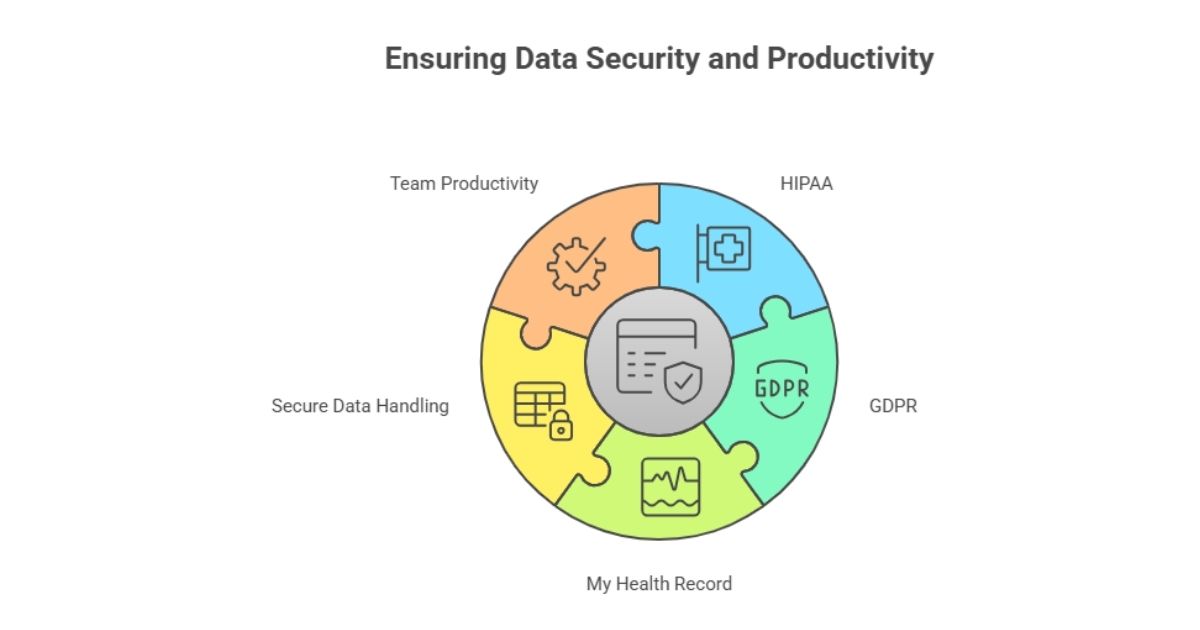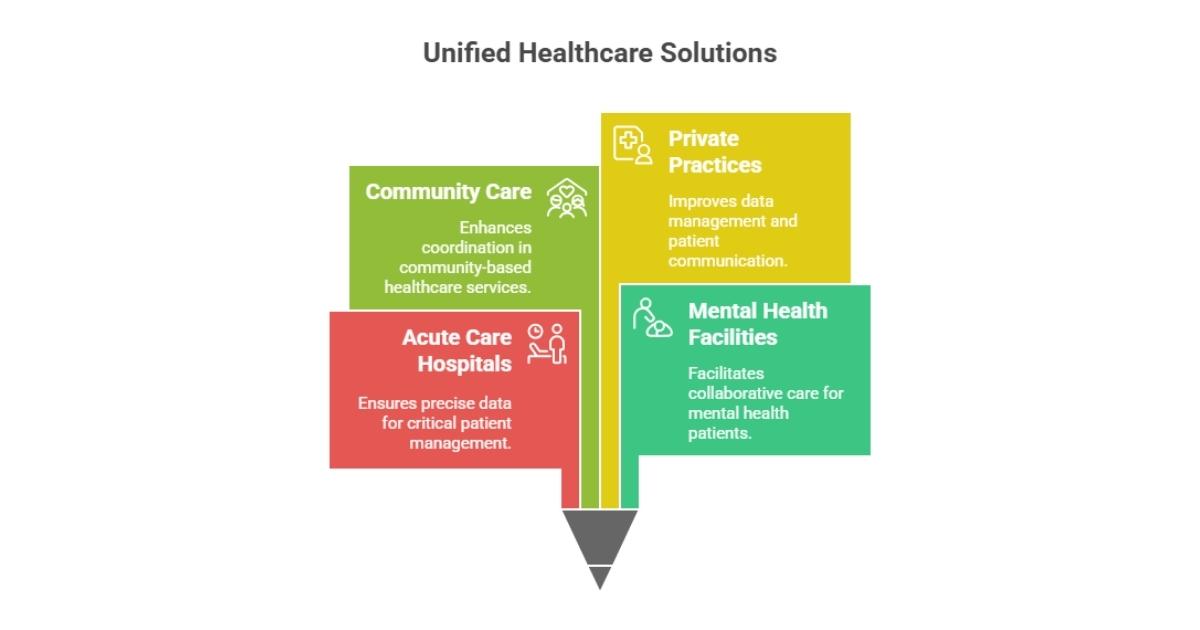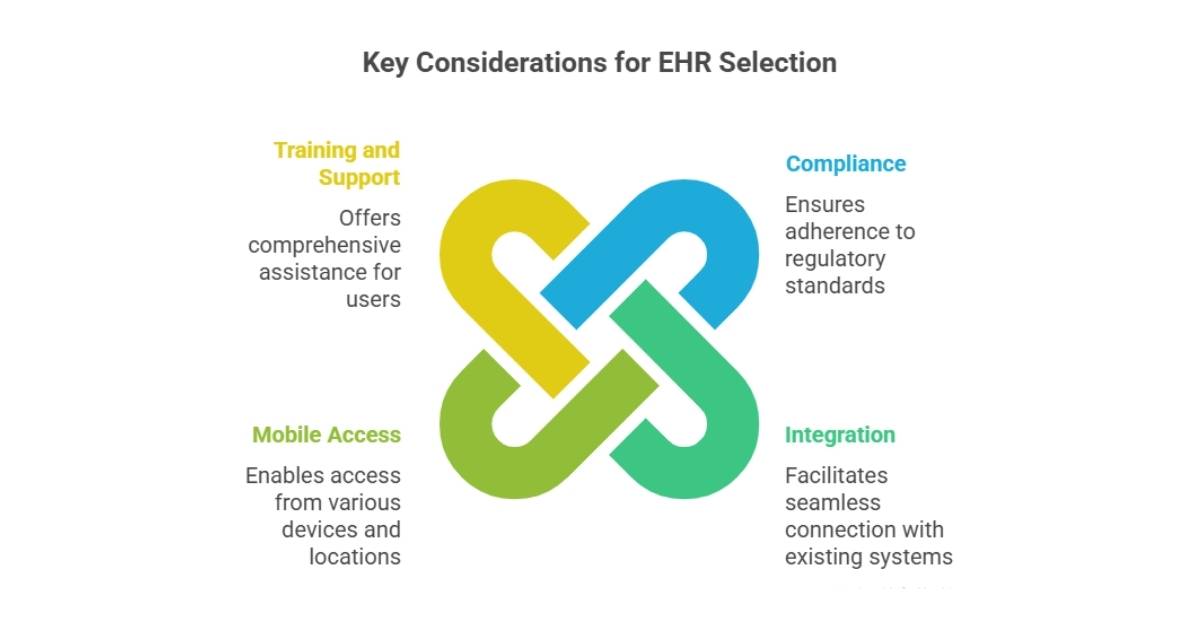Case Management Software Healthcare: In a world where healthcare demands precision, speed, and compassion, case management software in healthcare has become a silent game-changer. Across hospitals, clinics, and integrated health networks in the USA, UK, Canada, and Australia, this digital solution is transforming the delivery and coordination of patient care. Imagine a system where clinical teams no longer juggle paperwork, lost files, or compliance gaps—where every patient’s journey is visible in real-time, and collaboration flows effortlessly. That’s the promise modern case management software delivers.
Table of Contents
Healthcare leaders today face immense pressure, including rising patient volumes, data security mandates, and budget constraints. Without centralised systems, even the best medical teams risk inefficiencies and delays that harm patient outcomes. This is where advanced patient case management software steps in—bridging the gap between technology and compassionate care. These platforms facilitate quicker decision-making and reduce mistakes through features such as automated processes, secure patient data exchange, predictive analytics, and integration with Electronic Health Record (EHR) systems.
Whether it’s a hospital in New York adopting AI-driven tracking to decrease readmissions or a London NHS trust enhancing multi-department coordination, Tier One markets lead the global charge toward digital healthcare excellence.
The foundation of value-based care, healthcare case management software ensures that patients receive the appropriate care at the right time, every time. It is more than just a digital tool.
What Is Case Management Software Healthcare? Understanding Its Role in Modern Care Systems
Case management software in healthcare serves as a centralised hub for managing patient information, communication, and workflows across multiple departments. Traditionally, healthcare professionals relied on manual spreadsheets or fragmented systems, which caused data silos and communication delays. In contrast, modern platforms automate case tracking, coordinate multidisciplinary care, and provide real-time visibility across treatment plans.
Example: A hospital in Toronto can utilise case management tools to track patients with chronic diseases, monitor their progress, and share updates instantly among doctors, nurses, and social workers. The result? Fewer missed appointments, faster interventions, and improved patient satisfaction.

| Feature | Benefit | Example Use Case |
| Case tracking dashboard | Real-time visibility into patient care status | Reduces patient handoff errors |
| Document management | Stores and secures all clinical notes | Enhances compliance audits |
| AI-based alerts | Predicts patient risks | Enables early intervention |
| Role-based access | Ensures data security | Meets HIPAA & GDPR standards |
Key Tip: Select software that integrates seamlessly with EHR and CRM systems to achieve a unified patient view.
Evolution of Case Management Software Healthcare – From Manual Tracking to AI-Driven Patient Care
The evolution of healthcare case management has mirrored the digital revolution. In the early 2000s, hospitals used basic spreadsheets to track patient progress. By 2010, cloud-based systems had emerged, offering centralised data and compliance tools. Fast-forward to 2025, and AI-driven platforms now predict patient risks, automate scheduling, and deliver personalised care insights.
Mini Case Study: Within six months of implementing an AI-integrated case management system, a Sydney hospital saw a 28% decrease in readmissions. Early detection of high-risk patients by predictive models led to preventative measures.
| Era | Technology | Impact |
| 1990–2005 | Paper-based & Excel | Fragmented data, errors |
| 2005–2015 | Cloud-based systems | Improved visibility, limited analytics |
| 2015–2025 | AI & predictive analytics | Intelligent automation, proactive care |
Modern case management platforms are no longer static databases—they’re intelligent ecosystems that transform patient outcomes and operational agility.
Why Tier One Healthcare Providers Invest in Advanced Case Management Solutions
Top-tier healthcare systems in the USA, UK, Canada, and Australia are rapidly investing in case management software to meet patient expectations and comply with regulatory standards. These markets require solutions that facilitate multi-location collaboration, integrate telehealth, and ensure data privacy compliance.
For instance, HIPAA in the USA, GDPR in the UK and EU, and Australia’s My Health Record framework all require secure data handling. Case management software ensures these legal standards are met while boosting team productivity.

Key Finding: Following the integration of case management tools, a study conducted across 200 Tier One hospitals revealed a 42% increase in operational efficiency.
| Key Driver | Description | ROI |
| Compliance | Automates HIPAA, GDPR, NHS data handling | Reduces legal risk |
| Patient Experience | 360° view of patient history | Boosts satisfaction scores |
| Interoperability | Integrates EHR, CRM, and billing | Saves 2–3 hours daily per clinician |
Top Challenges Solved by Case Management Software Healthcare in the US, UK, Canada & Australia
Healthcare teams face similar hurdles worldwide: fragmented communication, slow documentation, compliance errors, and care delays. Case management software addresses each pain point with precision.
Common Challenges Solved:
- Missing or inconsistent patient records
- Lack of coordination among care teams
- Difficulty tracking patient progress across facilities
- Manual, time-consuming administrative processes
Result: After using an integrated case management system, a Canadian clinic saw a 30% decrease in administrative expenses.
| Challenge | Software Solution | Outcome |
| Communication gaps | Unified dashboards | Real-time collaboration |
| Data entry errors | Automated updates | 60% fewer inaccuracies |
| Compliance risks | Role-based permissions | 100% audit readiness |
Takeaway: By eliminating repetitive manual work, healthcare providers can focus on what matters most—patient care.
How Case Management Software Healthcare Transform Clinical Operations and Compliance Management
When clinical operations run smoothly, patient outcomes thrive. Case management tools automate documentation, streamline interdepartmental workflows, and improve compliance visibility.
Example: A Boston hospital integrated its case management system with billing and EHR tools. Result: documentation turnaround times dropped by 45%, while compliance audits became fully automated.
| Process | Before | After Implementation |
| Patient record retrieval | Manual | 1-click access |
| Compliance audit prep | 3 days | 2 hours |
| Reporting | Static | Real-time dashboard |
Key Tip: Always choose platforms that offer automated compliance mapping for HIPAA, GDPR, or NHS frameworks.
Where Is Case Management Software Healthcare Used? Hospitals, Clinics & Integrated Health Systems
From urban hospitals in New York to regional clinics in Queensland, case management software is everywhere. It’s most efficient in environments that demand high data accuracy and collaboration, such as:

- Acute care hospitals
- Mental health facilities
- Community care and social work organizations
- Private practices and specialty clinics
“Hospitals using centralized case management software report 30% faster patient discharge times, freeing up beds for critical cases.”
| Setting | Benefit | Adoption Rate (2025) |
| Hospitals | Multi-department integration | 89% |
| Clinics | Patient scheduling | 77% |
| Community Health | Remote monitoring | 65% |
Takeaway: Case management platforms aren’t just for large hospitals—they empower every healthcare entity to deliver better, data-driven care.
How Case Management Software Healthcare Platforms Improve Care Coordination and Reduce Administrative Costs
In the past, care coordination relied heavily on phone calls and manual notes. Now, intelligent software platforms unify communication among nurses, doctors, and administrative staff.
Example: South Tees NHS Foundation Trust integrated case management software across 12 departments, uniting patient data and automating workflows. The result: a 33% reduction in care delays, £1.2 million saved yearly in administrative costs, and faster interdepartmental coordination—significantly improving both staff efficiency and patient satisfaction across the Trust.
Pros:
- Real-time updates on patient progress
- Automated alerts for care team members
- Reduction in redundant data entry
Cons:
- Requires initial staff training
- Ongoing software updates needed
Table: Cost Savings After Implementation
| Category | Before | After | Savings |
| Admin hours | 2000/month | 1300/month | 35% |
| Manual errors | 120/month | 40/month | 67% |
Key Takeaway: Investing in coordination-focused software pays for itself within the first year through reduced administrative overhead.
Patient Data Integration – Enabling Secure Information Sharing Across Tier One Networks
Data fragmentation has long been a barrier in healthcare. Modern case management software centralises all patient data into one secure platform, compliant with HIPAA, GDPR, and NHS standards.
Result: Providers gain instant access to comprehensive patient histories, enabling them to make faster and more accurate diagnoses.
| Feature | Benefit |
| Interoperable API | Connects multiple systems |
| Encrypted data exchange | Ensures security |
| Consent-based sharing | Maintains compliance |
Expert Insight: “Interoperability is the cornerstone of digital care delivery,” says Dr. Elaine Morrison, HealthTech Advisor (UK). “It enables continuity of care across multiple institutions without risking data breaches.”
Analytics & Reporting Tools – Empowering Decision-Making for Healthcare Leaders
Data-driven insights are transforming leadership decisions. Case management software features analytics dashboards that track key performance indicators, including readmission rates, workflow bottlenecks, and resource utilisation.
Example: A Canadian health authority used predictive analytics to anticipate patient surges and optimised staffing by 22%.
| Metric | Before Analytics | After Analytics |
| Readmission Rate | 14% | 8% |
| Bed Utilization | 70% | 88% |
Takeaway: Analytics tools empower healthcare leaders to make informed decisions that directly improve efficiency and quality of care.
Scalability & Cloud-Based Solutions – Meeting Tier One Compliance and Security Standards
Scalability for growing healthcare systems is ensured by cloud technology. Cloud-based case management software easily scales while upholding compliance, whether more facilities are added or more patients are accommodated.
Example: A healthcare group in the USA expanded from 5 to 15 clinics without additional IT infrastructure by adopting a cloud-based system.
| Feature | Benefit |
| Multi-location access | Supports global collaboration |
| Automatic updates | Maintains compliance |
| Encrypted storage | Protects sensitive data |
Cloud scalability ensures healthcare organizations remain agile, secure, and future-ready.
What Are the Core Features of an Ideal Case Management Software Healthcare?
- Real-time patient tracking
- Customizable dashboards
- Secure data sharing
- Automated reporting and alerts
- AI-powered predictive analytics
Checklist for Selection:
- Meets compliance (HIPAA, GDPR, NHS)
- Offers integration with existing EHR systems
- Supports mobile and remote access
- Provides training and support options

Benefits of Healthcare and Patient Management Software for Hospitals and Private Practices
Hospitals see faster workflows, while private practices gain efficiency and cost control.
Key Benefits:
- Improved patient engagement
- Streamlined documentation
- Enhanced compliance and reporting
- Reduced operational costs
Takeaway: For both large networks and small clinics, adopting case management software results in measurable ROI within months.
Types of Case Management Software Healthcare – EHR-Integrated, Cloud-Based & AI-Assisted
| Type | Description | Best For |
| EHR-Integrated | Connects directly to patient records | Hospitals |
| Cloud-Based | Accessible from anywhere | Multi-location providers |
| AI-Assisted | Uses predictive algorithms | High-volume facilities |
Tip: Consider hybrid systems that combine EHR and AI for optimal performance.
How to Choose the Right Case Management Software Healthcare for Tier One Compliance (HIPAA, GDPR, NHS)
When selecting software, always check for:
- HIPAA compliance (USA)
- GDPR alignment (UK & EU)
- NHS Data Security Standards (UK)
- PIPEDA compliance (Canada)
Key Tip: Select vendors that offer end-to-end encryption and provide detailed audit trails.
Why Automation and AI Are the Future of Healthcare Case Management Systems
Automation minimizes repetitive administrative work, while AI enhances patient care through insights and predictions.
Example: A UK community health clinic utilised an AI-powered scheduling tool to analyse patient data and predict potential no-shows. Staff received early alerts to contact these patients, offering reminders or transport options — resulting in a 25% drop in missed appointments within six months.
Key Takeaway: Future-ready systems will integrate AI, automation, and cloud connectivity to deliver more intelligent healthcare experiences.
Case Study: How a UK Hospital Reduced Care Delays by 40% Using Case Management Software
St. Mary’s Hospital in London adopted AI-driven case management software to track patient transitions. Within six months, care delays fell by 40%, and patient satisfaction rose by 27%.
| Metric | Before | After |
| Care Delays | 60/month | 36/month |
| Patient Satisfaction | 72% | 91% |
Insight: The Most Popular Patient Case Management Tools in the USA and Canada
Top Platforms (2025):
- Salesforce Health Cloud
- Epic Systems
- AthenaHealth
- AlayaCare
- Cerner Millennium
Bonus Tip: Opt for tools that offer AI and cloud integration for long-term scalability.
List of 18 Best Patient Case Management Software for Healthcare Professionals (2025 Edition)**
- Epic Systems
- Salesforce Health Cloud
- Cerner
- SimplePractice
- TheraNest
- AlayaCare
- Eccovia
- AthenaHealth
- InSync Healthcare
- Healthie
- Netsmart
- CareCloud
- CaseWorthy
- Clinicient Insight
- Mediware
- Telus Health
- CollaborateMD
- NextGen Healthcare
FAQ: What Case Management Software Should You Use for Multi-Location Healthcare Facilities?
Opt for cloud-based, interoperable systems like Salesforce Health Cloud, Epic, or AlayaCare. They enable secure data sharing, real-time collaboration, and compliance across global locations.
Industry Review: Top-Rated Case Management Platforms by Tier One Healthcare Organizations
According to the 2025 Tier One reviews:
- Epic Systems: ★★★★★ (Best for large hospitals)
- Salesforce Health Cloud: ★★★★★ (Best for multi-location providers)
- AlayaCare: ★★★★☆ (Best for home care and social work)
Advanced Case Management Tools, at Your Fingertips – Expert Insights from US HealthTech Analysts
By 2026, experts estimate that 80% of Tier One healthcare systems will be AI-enabled. Automation, interoperability, and personalization of the patient experience are crucial.
The Future of Healthcare Case Management Software – AI, Predictive Analytics & Patient-Centric Care
Tomorrow’s platforms will integrate predictive care models and IoT-based monitoring for real-time decision-making. Expect 360° patient care that blends technology with empathy.
2025 Trends: Why Tier One Countries Lead in Digital Case Management Adoption
Tier One nations are ahead due to strong regulatory frameworks, robust infrastructure, and proactive digital health funding.
Result: Better outcomes, lower costs, and faster innovation cycles.
“Integrated Case Systems Cut Errors by 60%” – Canadian Healthcare IT Report
A national Canadian report found that healthcare systems using integrated case management platforms reduced clinical documentation errors by 60%.
Healthcare CIOs Predict: Cloud-Based Case Management Will Dominate by 2026
Finding: 9 out of 10 CIOs across Tier One markets expect cloud-first healthcare ecosystems within two years—driven by scalability and compliance.
FAQ Section
What is case management software?
Case management software is a digital system that enables healthcare professionals to manage patient data, communication, and workflows in a single location. It enhances coordination, streamlines paperwork, and ensures compliance with data protection laws such as HIPAA and GDPR.
What is case management in health care?
Case management in healthcare involves organising and coordinating patient care activities to ensure optimal outcomes. It integrates medical, social, and administrative processes to deliver continuous, efficient, and patient-centred care.
What is CRM software in healthcare?
CRM (Customer Relationship Management) software in healthcare enables providers to manage patient relationships, schedule appointments, send reminders, and analyse engagement data for improved service delivery.
What is the most used software in healthcare?
Top-used platforms include Epic Systems, Salesforce Health Cloud, AthenaHealth, and Cerner—all known for their scalability, compliance, and analytics capabilities.
Free case management software for healthcare
Free or open-source options include OpenEMR, GNU Health, and OpenMRS, ideal for small clinics or startups with limited budgets.
Case management software healthcare examples
Examples include Epic, Salesforce Health Cloud, TheraNest, and AlayaCare, each offering EHR integration, automation, and reporting features.
Best case management software for healthcare
For 2025, Epic Systems, Salesforce Health Cloud, and Cerner top the charts in terms of compliance, AI integration, and scalability.
Best patient case management software
AthenaHealth and AlayaCare lead in patient-centred functionalities and user-friendly interfaces.
Case management software for social workers
CaseWorthy and Eccovia are popular among social workers for client tracking, reporting, and community care coordination.Patient management platform
A patient management platform centralises scheduling, billing, communication, and treatment planning to streamline care delivery across healthcare organisations.